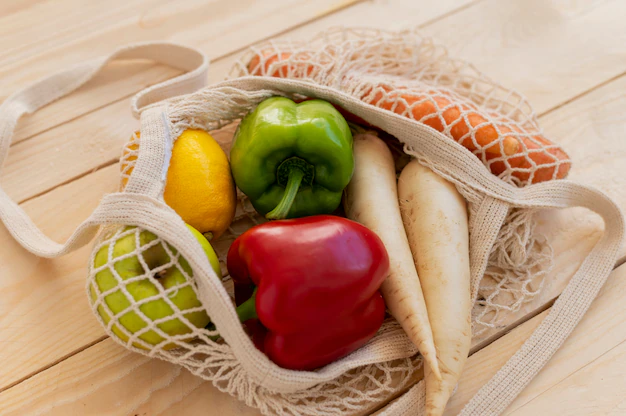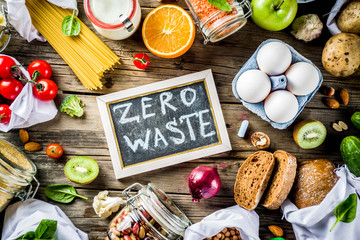
As a child, my grandmother used to fry paddy seeds in a pan full of hot sand to make puffed rice – tiny, yellowish-white, popping up like magic seeds in the pan. It was mixed with dry-fried ground nut and fried safflower seed, which made a fantastic evening snack that day. I cannot recall when the urea-soaked puffy milky white puffed rice replaced that.
There used to be tiny unknown varieties of fish during rainy seasons, collected by small kids and even by elderly ladies from the rice fields or unnamed streams, which were available aplenty in the local market.
They were delicious when cooked with mustard sauce or wrapped in bottle gourd leaves and steamed. I can’t recall precisely when those were replaced by frozen Carp injected with formalin.
I remember going to the market with my father. My father never asked whether the vegetables were ‘organic’ or not. For the last ten years, one has needed to go to shopping malls to buy more expensive organic vegetables than the vegetables available.
These are not stories; these are real. These are real for, perhaps, many of us. Now, we get tomatoes all through the year, cauliflower in summer, a few varieties of rice, and atta as white as maida. We have more than 50,000 edible plant species worldwide, but only a hundred contribute to our plate.
How to become a responsible Consumer?
Seasonal Food
- Unseasonal food needs extra protection in terms of chemical pesticide and fertilizer.
- Unseasonal food can also be from cold storage or packaged – so pumped in with a lot of preservatives.
- Seasonal food boosts immune system
- Seasonal food tastes better, fresh and affordable
Diverse Food
- Diversity in food means having a balanced diet and getting various micronutrients required for your health
- It delights your taste buds, eating same food is boring
- Diversity means, you get more option and choice – reduces your dependence over few
Local Food
- It will be fresh, will have no preservatives and will be suitable for need of the nutritional need of that locality
- It travelled less distance = less oil burning = less carbon emission
- It supports local economy, support your neighbor.
- It is also freedom of choice, freedom from stale packaged food
Click here to read more tips on shopping responsibly
The real ORGANIC
The idea that Organic farming is ‘replacing chemical fertilizers with cow dung’ is primitive. ORGANIC Farming with underground water, organic manure brought from the market, tractors run by non-renewable energy, and hybrid seeds from the market – is NOT natural Organic farming.
Organic farming, run as a contract farming practiced by corporate bodies with monocrop, acres after acres, is NOT natural Organic farming. Market-driven cash crop farming, even with organic manure, is NOT natural. Organic produce traveling huge distances on a carbon-emitting vehicle is NOT organic.
I prefer to use the word ‘ecological’ instead of organic farming – only because not all in the name of organic farming is socially just, ecologically sustainable, and economically fair.
Ecological farming, which focuses on sustainable techniques, self-sufficient in input by recycling agro-waste on the farm, is less costly to the farmer and to the environment (– and here I am not talking about a fancy small but prosperous farmer in the fringe of urban settlement, growing yellow capsicum for five-star customers, I am talking about an actual farmer). But the farmer should get a better price as she is spending more time and doing an ecological service to the earth. But when we buy products from the market, are we sure that the farmers are getting back their investment?
Most of the ‘organic’ products we buy from the shopping complexes are company-produced, not from small and marginal farmers. Are we concerned about their livelihood and our health, OR are we happy with organic apples coming from New Zealand? Are we content with the spices with a stamp of ORGANIC on them, which has high certification cost, and we are paying for it when we buy? Have we ever thought that the products grown with chemicals should carry a ‘danger’ sign?
Are we enquiring about these before buying as a responsible consumer?
You may also like; Know your food- Why & How for an Indian Consumer

Tips for a middle-class Indian buyer
Not everyone has access to farmers and not everyone can pay for the so-called costly organic products – some of us still have to depend on the regular market in our para. Even then, we can have healthy choices and be responsible consumers. Here are some tips for those.
How to buy Vegetables and fruits
- Buy seasonal. Like tomatoes, spinach, lettuce, beetroot, radish, cauliflower, and cabbage are winter vegetables – do not expect them in summer.
- Buy local, uncultivated, and traditional. Forget the imported exotic veggies. Look for vegetables/fruits like banana plant stem, flower, young banana, drumstick leaf/fruit/flower, papaya, fig, yam, neem leaves, falsa, nona, bathua, etc. Leafy greens, broccoli, carrots, etc., should be crisp and firm, have any sign of wilt or discoloring, and it’s past their prime.
- Avoid anything that has sprouted when it shouldn't (such as potato, sweet potato, onion, garlic, ginger, etc.).
- Choose vegetables and fruits of different colors.
- Don’t go by the look always. Too green and shiny isn't always natural. Don’t mind a few insect damages – it probably has less pesticide. Bananas with dark spots are not evil; they have more sugar content. Google for tips on how to detect adulteration.
- Don’t buy canned, if you can.
- Start a garden — in the yard or a pot on the deck — for fresh, inexpensive, flavorful additions to meals.
Buying Fish and meat
- Buy local and small fish. Also, look for muscle and cockles, small shrimps, shells, snails, etc..Avoid buying dead fish or chicken. It might contain formalin. It should not smell rotten.
- Fresh fish should feel slippery. The gill should be red. Check the eyes. They should be crystal-clear, wet, and shiny, with no sunken features. The tail and dorsal fins of the fish should be healthy-looking, wet, and intact. A fish that's been mishandled has torn or ragged fins, while an older fish's fins has dry and brittle.
- The color of fish/meat should not be unnaturally red/yellow.
- Don’t buy canned, frozen fish/meat. Buy in their simplest form. Pre-cut, pre-washed, ready-to-eat, and processed foods are convenient but often not safe and hygienic.
- Buy free-range desi chickens, duck eggs, and desi chicken eggs.
Reading a packet
- Avoid packaged food, especially junk food like chips and cold drinks, because it contains empty calories
- Look at the nutritional information panel. The ingredients are listed in order of highest to the lowest amount in the food. Be wary if the first ingredient does not match what the product is supposed to be. For instance, if you are looking at fruit juice, and something other than fruit is shown first, leave this product behind. Be especially wary when sugar is listed as the first ingredient..Look at the ingredients panel. If the ingredients list has more than 5-6 ingredients, it’s usually a sign the product has been heavily processed and is unlikely to offer much in the way of good health.
- Look for the shelf life date, expiry date, Use by, or Best before date. Storage conditions when unopened and after opening packaging. The name & address of the manufacturer, packer, and seller. The country of origin (in case of imported foods) – avoid imported food and food traveling long distances.






